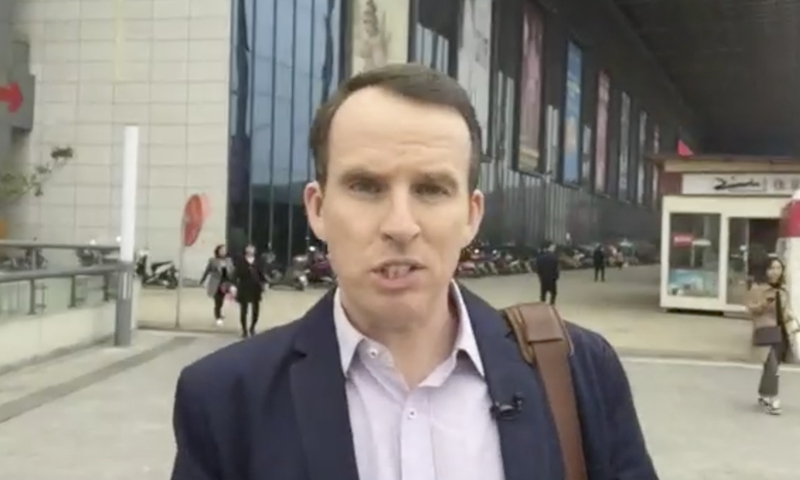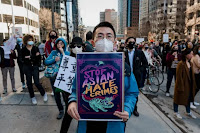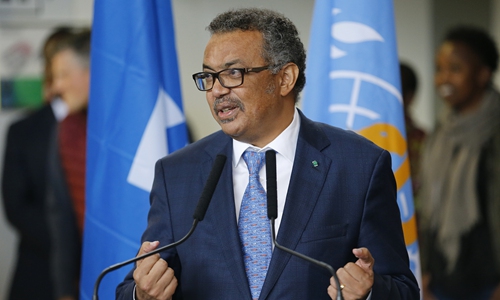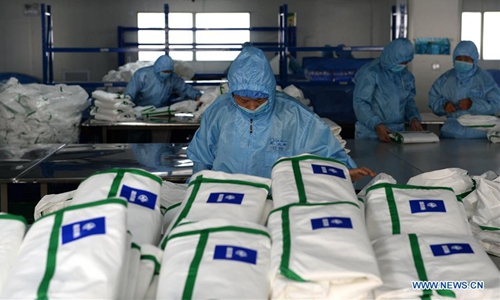The US has found the world order quickly shifting and is feeling uneasy with the challenge from China.
 Beautiful diversity: Today, there are 25 million Muslims living in China. Here, Muslim devotees are praying at the Nanxiapo Mosque in Beijing to celebrate Hari Raya Aidilfitri. — The Star
Beautiful diversity: Today, there are 25 million Muslims living in China. Here, Muslim devotees are praying at the Nanxiapo Mosque in Beijing to celebrate Hari Raya Aidilfitri. — The Star
In fact, I took the opportunity to travel to Nanjing, China, to pay respects to the great man at his tombstone.
The only snag was, Zheng He’s resting place remains a mystery, he who led historic voyages to South-East Asia and eastern Africa.
His remains have never been found, leading many to believe he received his final rites at sea during his last voyage, sometime in 1433.
But Zheng He is not a Uighur (pronounced as wee ger). He was from the Hui ethnic group, which comprises Muslims.
The history of Islam in China goes back more than a staggering 1,300 years.
While Zheng He is probably one of the most famous Muslims, there were others during the Ming rule, Muslim military generals including Mu Ying, Hu Dahai, Lan Yu, Feng Sheng and Ding Dexing.
There was also the famous Confucian Muslim scholar, Ma Zhu, who served during the Ming dynasty. The name Ma is the Chinese counterpart to Muhammad.
Today, there are 25 million Muslims living in China. The Hui is the largest group (48%), followed by the Uighur (41%), and together, they make up about 90% of the total Muslim population. The other Muslims include Kazakh (6,1%) and Dongxiang (2.5%), followed by the Kyrgyz, Uzbek, Salar, Tajik, Bonan and Tatar groups. They live mostly in Xinjiang, Gansu, Qinghai and Yunnan, and even in Beijing and Xian.
My trips to China have taken me to Xinjiang by air, road and train, where I spent weeks meeting these beautiful ethnic minorities.
I travelled on the Silk Road and tried imagining how ancient traders treaded the same path. Famed Italian merchant, Marco Polo, probably used the same route in the 13th Century to look for spices, silk and carpets.
My journey took me across the Taklamakan desert on long overnight trains to Turpan (or the Flaming Mountains), the setting of the famous Chinese novel Journey to the West, of the Monkey God fame.
The trip concluded in Urumqi, the capital of Xinjiang Uyghur Autonomous Region in the far northwest of China.
Urumqi was a major hub on the Silk Road during the Tang Dynasty’s golden age, and today, it has one of the world’s largest bazaars.
Walking through the markets reminded me of the souq in the Middle East, being surrounded by the blue-eyed Uighur and their distinct Turkish looks, while blonde Russians, all speaking Mandarin, were among the other Chinese. It was an exotic place, indeed.
As a “banana” (a term describing a Western-educated Chinese with Western world views, and can’t speak Mandarin), I was lucky to have scholars from Universiti Malaya explain the historical and academic aspects of China.
I have also travelled to Xian, where China’s ancient capital, Chang’an, is located. It was home to more than 10 dynasties.
It was a delight for me to step into the mosques and immerse in local Muslim culture. Islam has long been part of Xian history, where the terracotta soldiers stand guard.
But today, Xinjiang is in the international news for all the wrong reasons. Damaging words, including genocide, have been hurled at it. The grim and gruesome word means killing many people from an ethnic group with the aim of wiping it out.
There is little evidence, if none at all, to prove genocide, but it’s such a strong emotive word that it recalls the Holocaust and Khmer Rouge killing fields in Cambodia.
The Xinjiang cotton fields are alleged to have practised forced labour, even though it’s common knowledge that machines are required for large scale productions. There have also been accusations of rape.
Nothing is spared in the mind games between the two superpowers (US and China) to discredit each other.
Reports on the issue have come thick and fast from CNN and BBC, almost on a daily basis, in fact.
It’s hard to ignore that since the protests in Hong Kong began, they have become more involved in instigative journalism than investigative journalism.
Since the racist campaign by Donald Trump, where China was blamed for the spread of the coronavirus, Americans and many ill-informed Westerners have looked at ethnic Asians – especially those with Chinese features – negatively.
They have lumped all Orientals together as Chinese, just like how some think turbaned Sikhs with beards must be Taliban.
Now, under the Biden Administration, there is little difference, except perhaps Joe is less antagonistic, though the anti-China sentiments remain.
From the coronavirus to Huawei, and Tik Tok through to purported spy scholars and the South China Sea, and now Xinjiang cotton, it has become a concerted campaign.
We all know the US has little love for Muslims anywhere in the world.
The US has dropped enough bombs in Iraq, Syria, Libya, Afghanistan, as well as imposed sanctions against Iran, to substantiate that claim. The US has also turned a blind eye to the plight of the Palestinians.
These assaults were launched on the pretext of destroying weapons of mass destruction owned by the Saddam Hussein and Muammar Gaddafi regimes, though we now know fact from fiction.
While the two weren’t angels (but more dictators), the fanatical Islamic State took over after the two were deposed and worsened the situation.
Now, the attention is China. It’s the perfect villain – communist rule, no elections and a campaign against Muslims in Xinjiang.
Most Americans can neither pronounce Xinjiang nor point it out on a map, although that seems a moot point to them.
The truth is, the US is jittery because its dominance is over. The world order has changed.
While the US was busy executing its campaign in the name of upholding human rights and western values, and burning trillions of dollars on arsenal, the Chinese spent the last decades building their nation and eradicating poverty.
No one should be surprised when China overtakes the US in the world economy. It didn’t happen overnight, though.
Beijing, Shanghai, Shenzhen and Guangzhou may not be representative of the whole of China, especially compared to third-tier cities and rural areas, but credit where it’s due for the absence of homeless colonies in the cities.
As a Malaysian who has regularly visited China, I feel poor whenever I’m there. The glitzy skyscrapers, efficient transport system, low crime rate, affluence and orderly city administration has shown that China has certainly arrived.
The Chinese have become visibly wealthier and sophisticated, and while their tendency to flaunt their wealth rubs many the wrong way, they have simply become what the early rich Americans used to be. The rich Chinese are loud and brash, but along the way, they – just like the Americans did then – will change.
Rather than demonise China and its people, the US could do well with promoting its values, many of which are universal in nature, such as the rule of law, protecting individual rights, improving living standards and driving the engine of innovation.
The US remains the preferred destination for most people seeking migration.
The immigrants, including Muslims who refused to integrate, could have chosen Saudi Arabia, Iran, Qatar, Kuwait or Senegal, but they picked the US.
We embrace American culture and its lifestyle, especially Hollywood movies, Disneyland, burgers, Coca- Cola and music. That speaks volumes of how most of us admire the US.
While the Chinese are now at a stage where they are content with growth and material wealth, they will eventually question issues like environment, inequality and self-suffrage, when they find themselves without a safety net.
The expansion of the middle class has always been similar all over the world. When the stomach and pockets are full, people have time to talk about democratic ideals.
But for now, the chaos and destruction in Hong Kong and racism in the US have given reason for China, and Chinese all over the world, to push back, or even detest the aggressive campaign by the US. This is nothing more than blatant bullying.
It isn’t fair play, unlike what the US claims, because there’s clearly a lack of respect for competition.
We all believe “democracy is the worst system of government, except for everything else, ” as Winston Churchill said. It’s loud and messy, as we know, but power is more diffused in democracy, where it’s equally shared through the population, as James Stavridis, a retired US Navy admiral put it.
The Xinjiang campaign will come back to haunt the US. Unlike other Muslims in China, the Uighur have indulged in ISIS activities, including being actively involved in Syria, where many combatants are members of an Al Qaeda offshoot.
Reuters and Associated Press have reported of at least 5,000 Uighur in ISIS operating in Syria and Iraq.
Many of them from the outlawed Turkistan Islamic Party, are pushing for an Islamic state in Xinjiang, which China surely won’t tolerate.
That perhaps explains why China takes a different approach to the Uighur compared to other Muslims, though these actions remain open to debate.
But here’s the irony – while the US and its western allies are busy drumming up the issue, the powerful Muslim countries led by Saudi Arabia, along with 36 other countries, have defended China’s policies in Xinjiang in a letter released in 2019.
The world is not keen on getting entangled in an escalating trade war between the US and China.
We want both countries to work together, if they really believe and practise what they preach to the rest of us, the minion nations. And if they do, the world stands to benefit immeasurably.
Wong Chun Wai
 Wong Chun Wai began his career as a journalist in Penang, and has served The Star for over 35 years in various capacities and roles. He is now group editorial and corporate affairs adviser to the group, after having served as group managing director/chief executive officer. On The Beat made its debut on Feb 23 1997 and Chun Wai has penned the column weekly without a break, except for the occasional press holiday when the paper was not published. In May 2011, a compilation of selected articles of On The Beat was published as a book and launched in conjunction with his 50th birthday. Chun Wai also comments on current issues in The Star.
Wong Chun Wai began his career as a journalist in Penang, and has served The Star for over 35 years in various capacities and roles. He is now group editorial and corporate affairs adviser to the group, after having served as group managing director/chief executive officer. On The Beat made its debut on Feb 23 1997 and Chun Wai has penned the column weekly without a break, except for the occasional press holiday when the paper was not published. In May 2011, a compilation of selected articles of On The Beat was published as a book and launched in conjunction with his 50th birthday. Chun Wai also comments on current issues in The Star.
Related:
Related posts:
Winners, losers in Xinjiang cotton row
Not many will gain in the current furore over Xinjiang cotton, but the West may end up losing more.



















